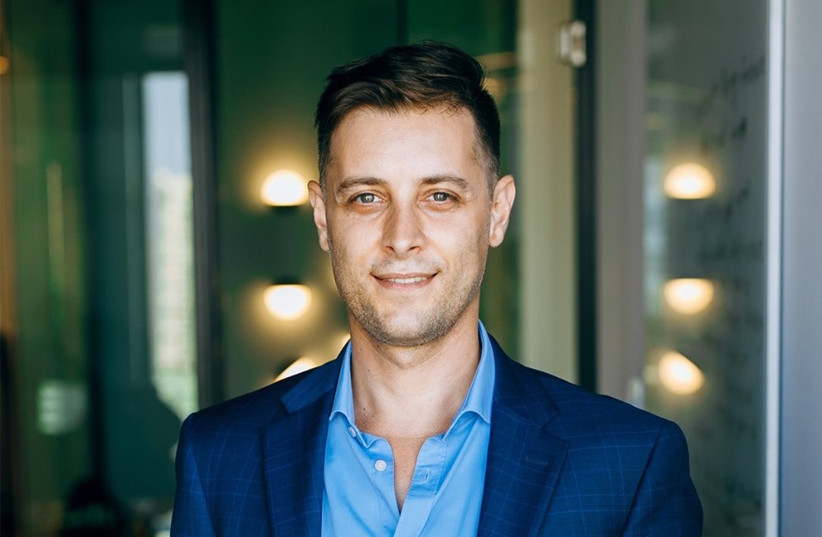In recent years, I have been spending a lot of my time in the US. First, as a scientist, and as of three years ago, as the co-founder and CEO of immunai, an engineering-first biotechnology company, aimed at fully mapping the immune system to improve personalized medicine.
I was born and raised in Israel, also referred to as the “startup nation”. As a scientist and entrepreneur, I have been pleased to discover how well Israeli scientists and entrepreneurs do overseas, especially in the United States.
In the past couple of years, I have heard Israel referred to as the “unicorn nation”, a reference to the “billion dollar club”, the group of private companies whose valuations are estimated over one billion dollars.
In 2021, there were 33 new unicorns in Israel, amounting to about 64 unicorns in Israel. Immunai joined this club in September of 2021, a humbling experience. Out of these 60 plus unicorns, there are very few unicorns in the medical space.

Does Israel have the right infrastructure to support building a biotech industry that can grow alongside the flourishing hi-tech industry?
Israel has a marvelous public healthcare system, for every citizen to enjoy. Getting into medical school in Israel is more difficult than getting into software engineering, electrical engineering, law or accounting. It is competitive, and the education and training programs offered are quite challenging.
So, we have good public hospitals and good MDs. Moreover, the payers (insurers) in Israel are quite centralized. By law, every citizen is medically covered by one of four health funds. All of the nation’s medical records are stored in a centralized database and there are few private insurance companies that can compete with these HMOs.
And yet, there are only a few biotech companies, and even less than that, pharmaceutical companies. Investments in biotech companies in Israel is extremely low compared to investments in hi-tech. Can we analyze why this is the case?
First, to start a cybersecurity company, for example, you need a few people with laptops and access to the cloud. Moreover, these companies are usually founded by people who were trained in cybersecurity in their military service which provided them with precious experience and expertise.
Cybersecurity investors already know that Israel is probably the best hub in the world for cybersecurity startups. We have the ecosystem - dozens of companies, and a workforce of probably tens of thousands of trained professionals, from SW engineers to salesmen and senior executives.
It is all here, and even the investors are here: they know how to find the top entrepreneurs in this space, what unit they served in the army and what are the most relevant metrics predictive of success.
Now, let’s take a biotechnology company trying to develop a new therapeutic drugs. The good news is that there are several top Israeli universities that educate and train strong biology researchers and biotechnology engineers. In fact, many of them transition into software engineering, because the demand for engineering talent in Israeli hi-tech companies is high.
The bad news is that the number of well-funded biotech companies that offer some sort of financial security to its employees is too small to create a meaningful ecosystem. Add to that the fact that the initial financing needed to get to a proof of concept (POC) stage in biotech companies is substantially higher than in hi-tech companies, and the scientific risk is real, the end result is that only a handful of investors and venture capital firms are willing to in Israeli biotech companies.
In recent years, we have witnessed a gradual shift in the life sciences startup industry in Israel.
This is partially fueled by the emergence of “digital health” companies, which are hi-tech companies that operate in the health or medical space. Such companies can offer a digital service of medical doctors via telemedicine, can store medical data on the cloud for HMOs or providers and they can offer diagnostic tests by analyzing pathology or other imaging reports.
While these companies offer solutions in the health or medical space, they borrow and use tools from the hi-tech industry and that means that at least the relevant talent for starting such companies is readily available in the ecosystem. The investments needed to make progress in such companies are sometimes comparable to the investments needed in the hi-tech space, and so we have witnessed some of the traditional hi-tech investors becoming increasingly more interested in digital health companies.
Now let’s talk about the future.
In less than 20 years, the field of medicine will be transformed. We will all have access to personalized medicine - from early diagnostics and preventive care that is offered to you at home, to personalized medicine and therapeutics that is uniquely targeting your specific biology, and personalized diet and exercise designed specifically for you.
I believe that here, in Israel, where we have an excellent healthcare system and some of the best engineers in the world, we can be a biotech leader, but in order for this to happen, we need to invest heavily in this space.
We need to train more biotechnology professionals, in all levels, from biotech engineers, to sales people, to executive leaders.
We need to train people straight out of their military service to study biology, chemistry and medicine, and we need to open pharmaceutical schools to train wet-lab scientists in biology, chemistry and other sciences.
Investors need to realize that while these investments are more intensive, and that while the risk is high, the reward is so much higher. It can literally change the world and especially the lives of the people living in it.
